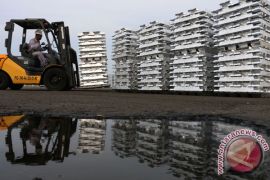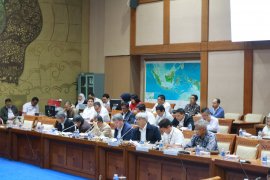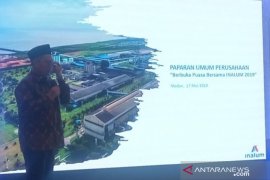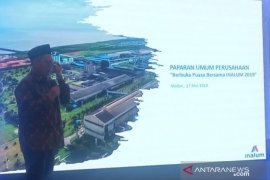"We wish that Inalum could become a world-class company, to be one the fifth or tenth biggest company in the world," the director of international industrial cooperation of the ministry of industry, Agus Tjahajana, said after a first formal meeting with the Japanese side on the future of aluminium smelter here on Friday.
He said right now the world`s aluminum production was recorded at around 40 million tons a year and China has been one of the big producers with its production reaching around 15 million tons a year.
"So it is indeed still far away for us to be able to reach that level. We are aware in order to reach that level there must be an increase (of production). How it will be done is still being discussed now," he said.
Until now the Indonesian government and the Japanese side are still conducting talks on the continuation of the Inalum project whose contract would expire in 2013.
The formal negotiation has just been started and the two sides have just presented their stand points.
The Indonesian negotiating team in the first formal meeting consists of the secretary general of the coordinating ministry for economic affairs, Eddy Abdurrahman, the director general of state assset management of the ministry of finance, Arif Baharudin, the secretary general of the industry ministry, Anshari Bukhari, the director general of international industrial cooperation, Agus Tjahajana, the director of basic metal industry of the ministry of industry, IG Putu Suryawirawan, and head of the Asahan Authority, Effendi Sirait.
Agus said at the meeting the Indonesian government again conveyed its decision to end the cooperation and takeover the management of Inalum in 2013.
Japan meanwhile again conveyed its wish to be able to continue the cooperation project and to invest to increase the production capacity of Inalum.
In the meeting Japan was represented by Takuma Yamaguchi, Kitama Naritoshi and Katsuhiko Murayama from the ministry of economy, trade and industry and the president of Nippon Asahan Aluminum Co. Ltd. (NAA) Motohiro Matsumoto and NAA`s representative director executive-vice president Moriaki Tanabe.
Also present were General Manager of Aluminum Division at Sumitomo Chemical, Yukio Mizuno, and General Manager of Planning and Coordinating Office on Basic Chemical Sector of Sumitomo Chemical, Jun Yamamoto and a representative from Japan International Cooperation Agency (JICA).
"The conclusion is the two parties have now known each other`s position. This is still an initial negotiation. Later they certainly have to conduct consolidation," he said.
Agus said the Indonesian government plans to re-order the whole operations of Inalum including its smelter plant and the Asahan II hydro-power plant after the cooperation contract with Japan expires in 2013.
"The whole operations in existence now after 2013 must be re-ordered. In view of that a team will be set up for it," he said.
The government, he said, right now has not yet finished conducting the final discussion on the concept of Inalum management after 2013 which will later be presented to Japan.
He said the government also planned to manage the company well by considering the economic development, the direction of aluminum industry and the impact on regional development.
"This is not a small problem and therefore we must be very careful and the team thiks for 2013 and beyond the position must be planned well. We will present it to Japan. If they agree please join us," he said.
PT Inalum is a joint venture company between Indonesia and NAA with an investment of around US$2 billion in 1987 which has been operating since 1982.
Indonesia holds 41.12 percent shares while NAA 58.88 percent shares.
PT Inalum`s facilities include an aluminum smelter plant in Kuala Tanjung, Batubara District and a hydro-power plant in Paritohan, Toba Samosir District.
Agus said Inalum at present has an installed production capacity of 250,000 tons of aluminum slabs a year and 40 percent of its production is marketed at home. (*)
Editor: Kunto Wibisono
Copyright © ANTARA 2011










